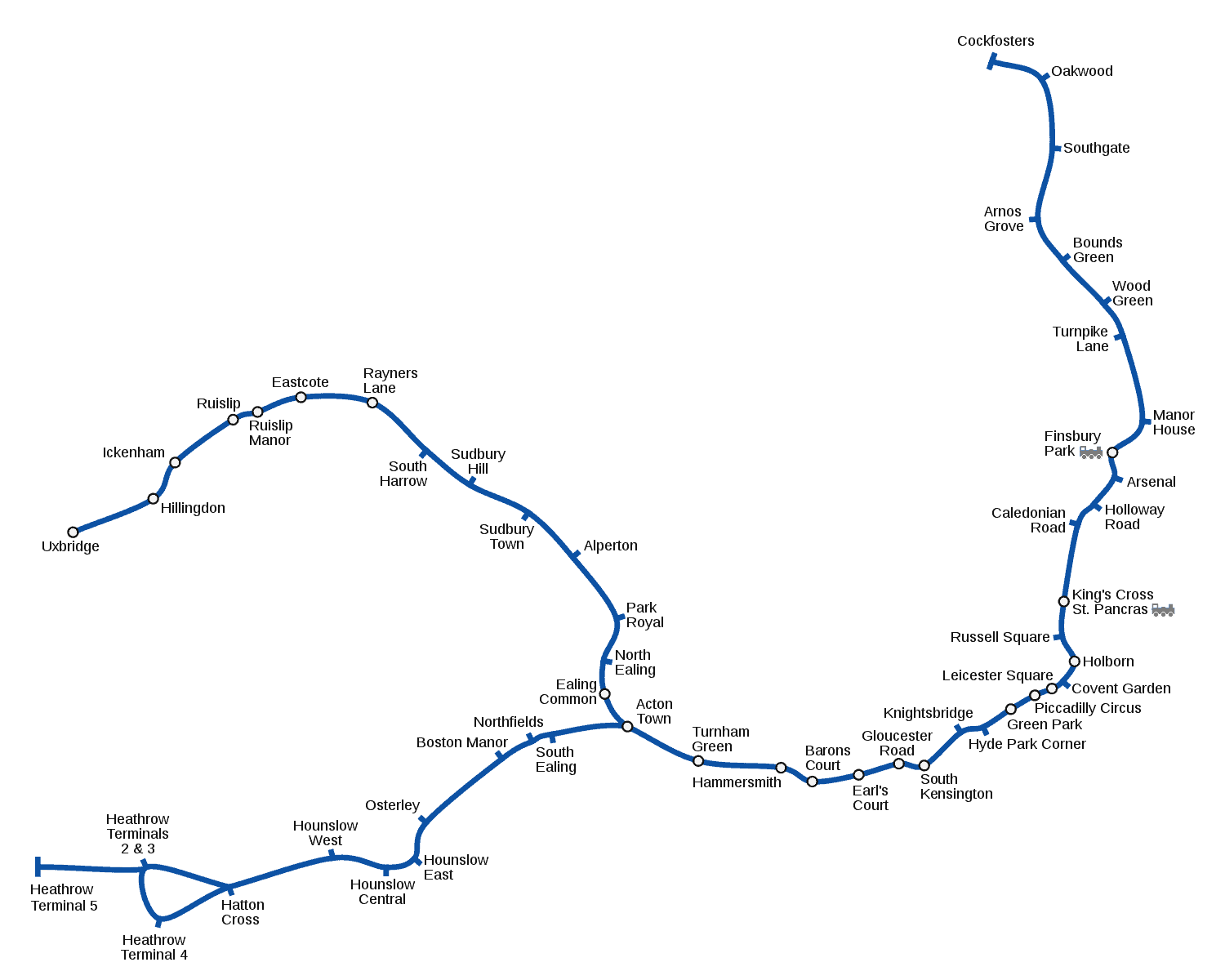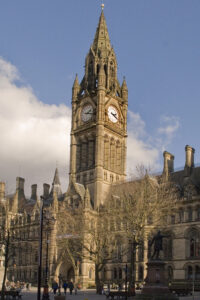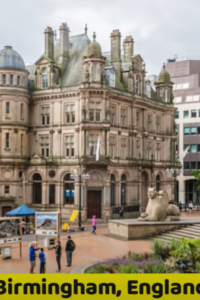Travelling in London requires knowing how to ride public transport and being familiar with the lines it consists of.
London Bus, Trams, and London Overground are some of the most commonly used modes of transportation.
However, a popular choice among locals and visitors is riding the London Underground, also known as the Tube.
It is important to note that the Tube has 11 lines, one of which is the Piccadilly line.
If you know how to ride the District line or Central line, then riding the Piccadilly line will be a piece of cake.
In this article, you will learn about the line’s routes and stops, as well as fares and payments.
Some other Tube lines
- Bakerloo line
- Central Line
- Circle line
- District Line
- Hammersmith & City line
- Jubilee line
- Metropolitan line
- Northern line
- Victoria line
- Waterloo & City line
In summary, the article has information on:
- What Is the Piccadilly Line?
- Piccadilly Line Stations
- Piccadilly Line Routes and Stops
- Piccadilly Line Map
- What Zones Is the Piccadilly Line?
- Piccadilly Line Fares and How to Pay
- Where to Go Sightseeing on the Piccadilly Line
- Frequently Asked Questions
Contents
What Is the Piccadilly Line?

(Image via Wikimedia Commons by Ed g2s)
The Piccadilly line opened to the public in 1906, with its last extension on March 27, 2008.
It currently has 53 stations and a total length of 45.96 mi or 73.97 km. Cockfoster and Northfields stations are its depots.
In a year, it garners a total annual ridership of about 210.169 million passenger journeys. According to Transport for London, the average speed of the Piccadilly line is 33.11 km per hour.
If you are to look for the line in the Tube and Rail map, it is identified with a dark blue line, officially “Corporate Blue” Pantone 072 colour.
Piccadilly Line Stations
Get to know all the stations of the Piccadilly line and its interchanges.
Some of the stations have train connections with other lines, including, District line, Metropolitan line, Victoria line, Circle line, and Hammersmith & City line, to name a few.
In alphabetical order, the stations are listed below in the table.
Table of Piccadilly Line Stations
| Station Name | Interchange |
| Acton Town Underground Station | Connects to District line |
| Alperton Underground Station | N/A |
| Arnos Grove Underground Station | N/A |
| Arsenal Underground Station | N/A |
| Barons Court Underground Station | Connects to District line |
| Boston Manor Underground Station | N/A |
| Bounds Green Underground Station | N/A |
| Caledonian Road Underground Station | N/A |
| Cockfosters Underground Station | N/A |
| Covent Garden Underground Station | N/A |
| Ealing Common Underground Station | Connects to District line |
| Earl’s Court Underground Station | Connects to District line |
| Eastcote Underground Station | Connects to Metropolitan line |
| Finsbury Park Underground Station | Connects to Victoria line
Connects to National Rail |
| Gloucester Road Underground Station | Connects to Circle and District lines |
| Green Park Underground Station | Connects to Jubilee and Victoria lines |
| Hammersmith (Dist&Picc Line) Underground Station | Connects to Circle, District, and Hammersmith & City lines |
| Hatton Cross Underground Station | |
| Heathrow Terminal 4 Underground Station | Connects to Elizabeth line
Connects to National Rail Connects to airport |
| Heathrow Terminal 5 Underground Station | Connects to Elizabeth line
Connects to National Rail Connects to airport |
| Heathrow Terminals 2 & 3 Underground Station | Connects to Elizabeth line
Connects to National Rail Connects to airport |
| Hillingdon Underground Station | N/A |
| Connects to Metropolitan | N/A |
| Holborn Underground Station | Connects to Central |
| Holloway Road Underground Station | N/A |
| Hounslow Central Underground Station | N/A |
| Hounslow East Underground Station | N/A |
| Hounslow West Underground Station | N/A |
| Hyde Park Corner Underground Station | N/A |
| Ickenham Underground Station | Connects to Metropolitan |
| King’s Cross St. Pancras Underground Station | Connects to Circle, Hammersmith & City, Metropolitan, Northern, and Victoria lines
Connects to National Rail |
| Knightsbridge Underground Station | N/A |
| Leicester Square Underground Station | Connects to Northern |
| Manor House Underground Station | N/A |
| North Ealing Underground Station | N/A |
| Northfields Underground Station | N/A |
| Oakwood Underground Station | N/A |
| Osterley Underground Station | N/A |
| Park Royal Underground Station | N/A |
| Piccadilly Circus Underground Station | Connects to Bakerloo |
| Rayners Lane Underground Station | Connects to Metropolitan |
| Ruislip Manor Underground Station | Connects to Metropolitan |
| Ruislip Underground Station | Connects to Metropolitan |
| Russell Square Underground Station | N/A |
| South Ealing Underground Station | N/A |
| South Harrow Underground Station | N/A |
| South Kensington Underground Station | Connects to Circle and District lines |
| Southgate Underground Station | N/A |
| Sudbury Hill Underground Station | N/A |
| Sudbury Town Underground Station | N/A |
| Turnham Green Underground Station | Connects to District |
| Turnpike Lane Underground Station | N/A |
| Uxbridge Underground Station | Connects to Metropolitan |
| Wood Green Underground Station | N/A |
Piccadilly Line Routes and Stops
The three routes of the Piccadilly line are Heathrow Terminal 4 to/from Cockfosters, Heathrow Terminal 5 to/from Cockfosters, and Uxbridge to/from Cockfosters.
All three routes are for the day service. However, the route for Heathrow Terminal 5 to/from Cockfosters is also used for the night service.
The table below lists the three routes and its respective stops. The stops are written in order, from the first station to the last.
Table of Piccadilly Line Routes and Stops Day Service
| Route | Stops |
| Heathrow Terminal 4 ↔ Cockfosters |
|
| Heathrow Terminal 5 ↔ Cockfosters |
|
| Uxbridge ↔ Cockfosters |
|
Thanks to the Night Tube, you don’t have to worry about missing the train in late evenings.
The Night Tube offers train services along Piccadilly, Central line, Jubilee line, Northern line, and Victoria line every Friday and Saturday evenings. Journeys made on the Night Tube are charged an off-peak fare.
Table of Piccadilly Line Routes and Stops Night Service
| Route | Stops |
| Heathrow Terminal 5 ↔ Cockfosters |
|
Piccadilly Line Map
Look for the dark blue-coloured line on the Tube and Rail Map by TfL.
The map is easy to use and understand with the help of key symbols and coloured-lines.
Aside from interchanges and station, you can also find available step-free access, airport, cable car, and many more.
What Zones Is the Piccadilly Line?
Aside from key symbols and interchanges, you will notice that there are grey and white shaded areas with a number assigned to them.
These numbered areas indicate the Fare Zones of each station. There are nine zones: zones 1 to 9.
Fare Zones are used for Tube, DLR, Elizabeth Line, London Overground, River Bus, and most National Rail services to determine the total fare of your journey from point A to point B.
Piccadilly line station zones are Zone 1, Zone 2, Zone 3, Zone 4, Zone 5, and Zone 6. Knowing which zones the stations you are travelling to can help you get an idea on how much you have to pay for the fare.
If you decide to purchase capped Pay-as-you-go cards or Travelcards, keep in mind you need to indicate which zones you want to use it for.
Piccadilly Line Fares and How to Pay
You can pay for your Piccadilly line fare with an Oyster Card, Contactless Card, Travelcard, or Visitor Oyster Card.
These options are convenient and offer a hassle free commute.
Moreover, payment cards like these are discounted, so you don’t have to pay for the regular fare as you would with a paper ticket.
You normally have to choose the card’s duration, times, and zones.
If you travel outside your desired duration or zone, you won’t be able to get a discounted fare and you will have to pay the full fare.
Learn about the differences of each card by reading the guide Visitor Oyster Card Vs Oyster Card Vs Travel Card Vs Contactless Card.
To know the exact fare you are expected to pay, use the Single fare finder tool provided by TfL.
Alternatively, you can also use the Caps and Travelcard prices tool to know the cost per zone.
Generally, the more zones you travel to, the higher the fare.
You can find an overview of adult fares from Zones 1 to 9 here.
Listed below is the adult rate for Pay as you go caps and Travelcards per zone.
Piccadilly Line Pay as you go Caps and Travelcard Adult Rates Table
| Zone | Pay-as-you-go caps | Travelcard | ||||||
| Daily Peak | Daily Off-peak | Monday to Sunday | Day Anytime | Day Off-peak | 7 Day | Monthly | Annual | |
| Zones 1 only | £7.70 | £7.70 | £38.40 | £14.40 | £14.40 | £38.40 | £147.50 | £1,536 |
| Zones 1-2 | £7.70 | £7.70 | £38.40 | £14.40 | £14.40 | £38.40 | £147.50 | £1,536 |
| Zones 1-3 | £9.00 | £9.00 | £45.20 | £14.40 | £14.40 | £45.20 | £173.60 | £1,808 |
| Zones 1-4 | £11.00 | £11.00 | £55.20 | £14.40 | £14.40 | £55.20 | £212.00 | £2,208 |
| Zones 1-5 | £13.10 | £13.10 | £65.70 | £20.30 | £14.40 | £65.70 | £252.30 | £2,628 |
| Zones 1-6 | £14.10 | £14.10 | £70.30 | £20.30 | £14.40 | £70.30 | £270.00 | £2,812 |
| Zones 1-7 | £15.30 | £14.10 | £76.50 | £25.70 | £15.30 | £76.50 | £293.80 | £3,060 |
| Zones 1-8 | £18.10 | £14.10 | £90.30 | £25.70 | £15.30 | £90.30 | £346.80 | £3,612 |
| Zones 1-9 | £20.00 | £14.10 | £100.20 | £25.70 | £15.30 | £100.20 | £384.80 | £4,008 |
Where to Go Sightseeing on the Piccadilly Line
Planning to take the Piccadilly line? Check out all the sights and attractions you will be able to enjoy when using the line.
From Furtherfield Gallery to The British Museum and London Transport Museum, there is something for every kind of interest.
Furtherfield Gallery
Station: Finsbury Park
Address: The McKenzie Pavilion, Finsbury Park, London N4 2NQ, United Kingdom
Camley Street Natural Park
Station: Kings Cross St Pancras
Address: 12 Camley St, London N1C 4PW, United Kingdom
Phone: +44 20 3897 6150
Great Ormond Street Hospital
Station: Russell Square
Address: 40 Bernard St, London WC1N 1LE, United Kingdom
Phone: +44 20 3841 3841
British Museum
Station: Holborn
Address: Great Russell St, London WC1B 3DG, United Kingdom
Phone: +44 20 7323 8299
London Transport Museum
Station: Covent Garden
Address: The Piazza, London WC2E 7BB, United Kingdom
Phone: +44 343 222 5000
View this post on Instagram
Eros Statue/ Shaftesbury Memorial Fountain
Station: Piccadilly Circus
Address: Piccadilly Circus, London W1J 9HS, United Kingdom
Buckingham Palace
Station: Green Park
Address: London SW1A 1AA, United Kingdom
Phone: +44 303 123 7300
Hyde Park – the Serpentine
Station: Hyde Park Corner
Address: London, United Kingdom
Harrods
Station: Knightsbridge
Address: 87-135 Brompton Rd, London SW1X 7XL, United Kingdom
Phone: +44 20 7730 1234
View this post on Instagram
Science Museum
Station: South Kensington
Address: Exhibition Rd, South Kensington, London SW7 2DD, United Kingdom
Phone: +44 330 058 0058
View this post on Instagram
Kensington Palace
Station: Gloucester Road
Address: Kensington Gardens, London W8 4PX, United Kingdom
Phone: +44 333 320 6000
Brompton Cemetery
Station: Earl’s Court
Address: Fulham Rd., London SW10 9UG, United Kingdom
Phone: +44 300 061 2172
The Queen’s Club
Station: Baron’s Court
Address: Palliser Rd, London W14 9EQ, United Kingdom
Phone: +44 20 7386 3400
The River Thames
Station: Hammersmith
Address: flows to London, Henley-on-Thames, Oxford, Reading, and Windsor
Heathrow Airport and Terminals
Station: Heathrow
Address: Longford TW6, United Kingdom
Phone: +44 844 335 1801
Frequently Asked Questions
What type of service is the Picacadilly line?
The line provides rapid transit services as part of the London Underground, passing through deep tube tunnels.
Who operates the Piccadilly line?
The London Underground Limited (LUL) is the current operator of the London Underground.
Since the Piccadilly line is part of the London Underground, it has the same operator.
What was the Piccadilly line originally?
The Piccadilly line opened in 1906 and was originally known as Great Northern, Piccadilly & Brompton Railway. It ran services from Finsbury Park to Hammersmith.
Why is it called Piccadilly?
The name was taken from its original service, the Great Northern, Piccadilly & Brompton Railway (GNP&BR) and from the main road “Piccadilly” which is between Piccadilly Circus and Hyde Park Corner.
Any Thoughts?
Have you ever ridden the Piccadilly line before? What do you think about its service? Share your thoughts below by writing a comment in the comments section.
If you’d like to learn more about the lines of the London Underground, check out Winterville’s blogs on Jubilee line, District Line, Central line, and Northern line, to name a few.
You can also read about other public transport in London such as Elizabeth Line, London Overground, Trams, and DLR.


